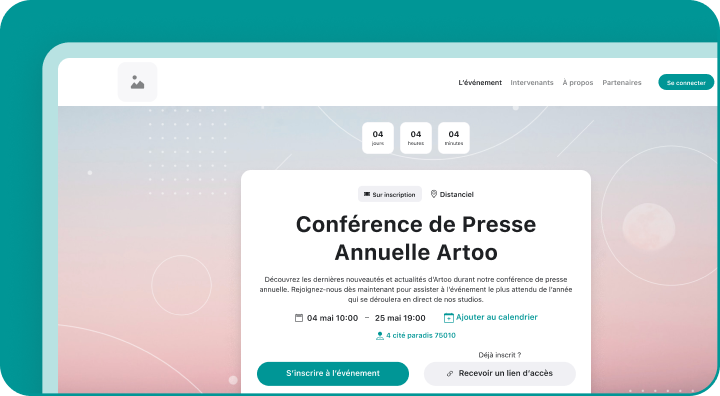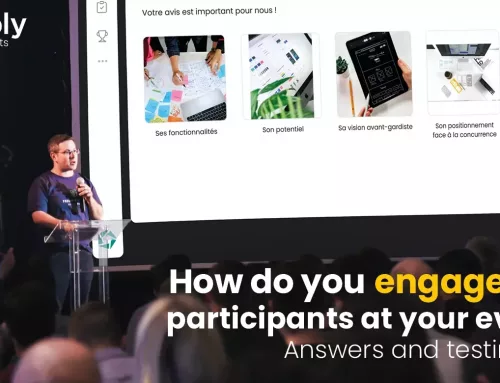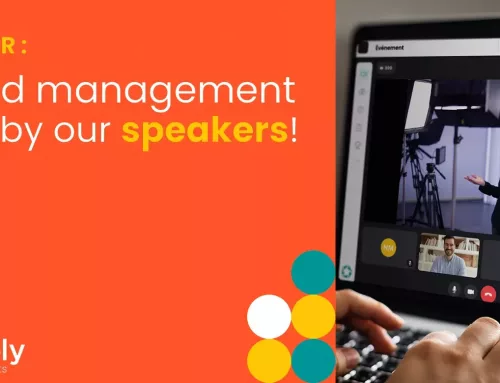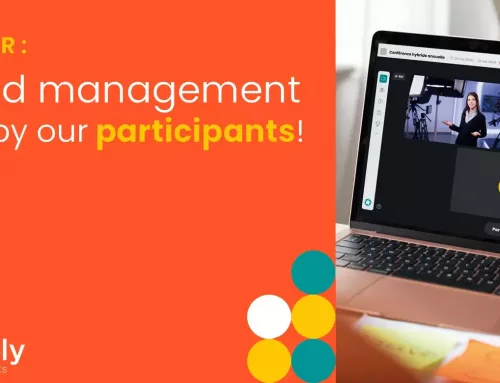Physical, digital or hybrid? The event industry is reinventing itself
It has been a year now since the economic, social and societal life has been submerged by the health crisis linked to Covid.
Entire sectors of economic activity have been forced to revolutionize their practices, their rituals… and the event industry has undergone a mini-revolution whose consequences are only beginning to be seen.
The question naturally arose to go 100% digital in the organization and animation of events. The shift has been made and it is not ready to stop because many players continue to emerge in a sector whose development potential is infinite. But does this mean the “death” of physical events in favor of digital?
First of all, let’s make things clear: digital events already existed before the COVID crisis. The current crisis has only accelerated certain trends, and this in all sectors of activity. Many event organizers were already developing digital solutions or at least exploring the virtual possibilities before the health crisis emerged.
But the question remains: will these digital events replace physical events?
Physical events, at the origin of the event
In the collective imagination, events are necessarily physical or face-to-face, to use the current semantics. It allows to gather people, to create or keep a link. Face-to-face interaction is particularly important for people. In general, people need social interaction, which the physical event can provide.
From a company’s point of view, the physical event allows to create a bond with employees or with customers. The face-to-face event allows a brand to meet its audience, to get closer to them.
Once this emotional and social foundation is laid, let’s look at the benefits of a physical event.
- Stimulation of the senses: This format of event allows to engage the participants in particular by arousing their emotions. It is through the stimulation of our 5 senses that we feel various emotions: a smell that reminds us of our childhood, music that we listened to on our first night out with our friends… The physical event is the most adapted format to stimulate the senses of its participants.
- Economic impact: When a city or a site hosts an event, the participants are a financial manna for the local establishments. Hotels, restaurants, transportation and even tourism benefit from this additional activity.
Considering these two elements, and even though we are all terribly lacking in social interactions since March 2020, we can easily imagine that physical events, with the massive vaccination campaign underway, will regain its credentials and re-establish itself as a must, at the expense of digital.
Digital, or the event in the long run
Yes, but… Digital is still in its infancy. And collaborative platforms like Wisembly have a crucial role to play when it comes to thinking about, organizing, and running your digital event.
Telecommuting is becoming more common and many employees are still 50 to 80% at home. According to a study conducted by LinkedIn with 200 BtoB event organizers, 51% of them want to continue with the digital format in order not to be dependent on the health context. Finally, a digital event exists in the long term, thanks to the replay, and offers analysis tools and KPi’s that are essential for those who want to ensure the success of their event. And this is something that only digital allows today.
But the digital event is also :
More economical. It’s the all-in-one principle. And Wisembly, for example, with its platform participates in this cost sharing by grouping all the features for organizing, hosting and analyzing your event in a single tool.
More visible. From a strictly marketing point of view, the digital event is much more impactful. Replay on social networks, sharing of documents, are all assets to make your event live in the long term.
Without limits. A digital event is not constrained by a physical space that cannot accommodate as many people as you would like. You can invite as many people as you want without any limit of space and especially by giving an international dimension to your event since everyone, wherever they are, can participate.
One might think that, considering the advantages and qualities of face-to-face events versus digital, the latter would win this duel hands down. But we should rather imagine the complementarity of the two to create a new category, which is starting to find its place, the phygital or hybrid.
It combines the best of the physical format with the advantages of digital. By accompanying the audience present on site with a mobile application and the remote audience with a platform such as Wisembly. Two distinct experiences for a successful event!




